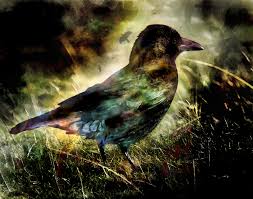
This podcast was broadcast February 27, 2017 on Enlighten Radio in Shepherdstown West Virginia. The Poetry Show airs regularly Mondays, 7:30 -- 9:00 AM, EST.
Afaa Michael Weaver was born in 1951 in Baltimore, MD, the oldest of five children of working class parents. His mother was a beautician and his father was steelworker. He graduated from Baltimore Polytechnic Institute, an elite high school, at age 16, and then enrolled in the University of Maryland. After two years he dropped out of college, married, and for the next fifteen years worked in series of manufacturing jobs. However, during those years he continued to write poetry and launched a small publishing company (7th Son Press) and a literary journal (Blind Alley) with his overtime earnings and a grant from the city of Baltimore. In 1985, he published his first book of poetry, Water Song (University Press of Virginia, 1985). In that same year he also won a $20,000 grant from the National Endowment for the Humanities and a fellowship
to the graduate creative writing program at Brown University. The fellowship was contingent on finishing his undergraduate degree, which he did at Excelsior College. Subsequent books include My Father's Geography (University of Pittsburgh Press, 1992), Timber and Prayer (University of Pittsburgh Press, 1995), Ten Lights of God (Bucknell University Press, 2000), Multitudes (Saraband Books, 2000), and the three books that form the Plum Flower Dance trilogy: Plum Flower Dance: Poems 1985-2005 (University of Pittsburgh Press, 2007), The Government of Nature (University of Pittsburgh Press, 2013) which won the prestigious Kingsley Tufts Poetry Award, and City of Eternal Spring (University of Pittsburgh Press, 2014). His two most recent publications are the chapbook A Hard Summation (Central Square Press, 2014), a cycle of thirteen poems about African-American history from the slavery to the current day, and the full length collection, Spirit Boxing (University of Pittsburgh Press, 2017), which centers on the years he spent working in factories. In 2002, he won a Fulbright scholarship, went to Taiwan, and taught at National Taiwan University and Taipei National University of the Arts. He currently teaches at Simmons College in Boston, Massachusetts.
This week's featured poem is "A Nation of Hands," from his just published collection, Spirit Boxing (University of Pittsburgh Press, 2017). This poem begins as a descriptive list of actions undertaken by hands but takes a surprising turn toward the end.
A NATION OF HANDS
Kneading dough on rough wooden tables, forward
and backward, in laundry tubs with scrubbing boards,
sweat sifting down temples where hair lays sweetened
in curls, on the chests of arrested hearts, pushing down,
praying the heart headed to the dust will stop and know
the troubling grief it is about to summon, children's
hands moving across blackboards to erase a day's study
and please the teachers, on sacred books above gestures
signifying which way to turn, parades of hopeful souls
headed to righteousness in churches, temples, mosques,
over the terrified mouths of men on decks of ships
overwhelmed, about to founder full of fresh haddock,
massaging the stiffened backs of our grandfathers, lifting
memories of our origins out of sheaths of muscle tissue,
holding a frightened calf down to hush it to sleep,
sucking back tears to think of tables it will feed, deciding
in one last minute to let it go and eat vegetables instead,
that mercy, or the mercy of walking in the full breeze
of spring in Appalachia, your dress lifting under you,
singing the surprise of love when it is full and bright,
the applause held in suspended air when the dance
surprises, the music lifts to some impossible phrase,
those mercies and the deep mercy of knowing hands
are the openers of gates and clasped they are the keys.
Kneading dough on rough wooden tables, forward
and backward, in laundry tubs with scrubbing boards,
sweat sifting down temples where hair lays sweetened
in curls, on the chests of arrested hearts, pushing down,
praying the heart headed to the dust will stop and know
the troubling grief it is about to summon, children's
hands moving across blackboards to erase a day's study
and please the teachers, on sacred books above gestures
signifying which way to turn, parades of hopeful souls
headed to righteousness in churches, temples, mosques,
over the terrified mouths of men on decks of ships
overwhelmed, about to founder full of fresh haddock,
massaging the stiffened backs of our grandfathers, lifting
memories of our origins out of sheaths of muscle tissue,
holding a frightened calf down to hush it to sleep,
sucking back tears to think of tables it will feed, deciding
in one last minute to let it go and eat vegetables instead,
that mercy, or the mercy of walking in the full breeze
of spring in Appalachia, your dress lifting under you,
singing the surprise of love when it is full and bright,
the applause held in suspended air when the dance
surprises, the music lifts to some impossible phrase,
those mercies and the deep mercy of knowing hands
are the openers of gates and clasped they are the keys.
More Episodes
012345678910111213141516171819
Create your
podcast in
minutes
- Full-featured podcast site
- Unlimited storage and bandwidth
- Comprehensive podcast stats
- Distribute to Apple Podcasts, Spotify, and more
- Make money with your podcast
It is Free
- Privacy Policy
- Cookie Policy
- Terms of Use
- Consent Preferences
- Copyright © 2015-2024 Podbean.com







